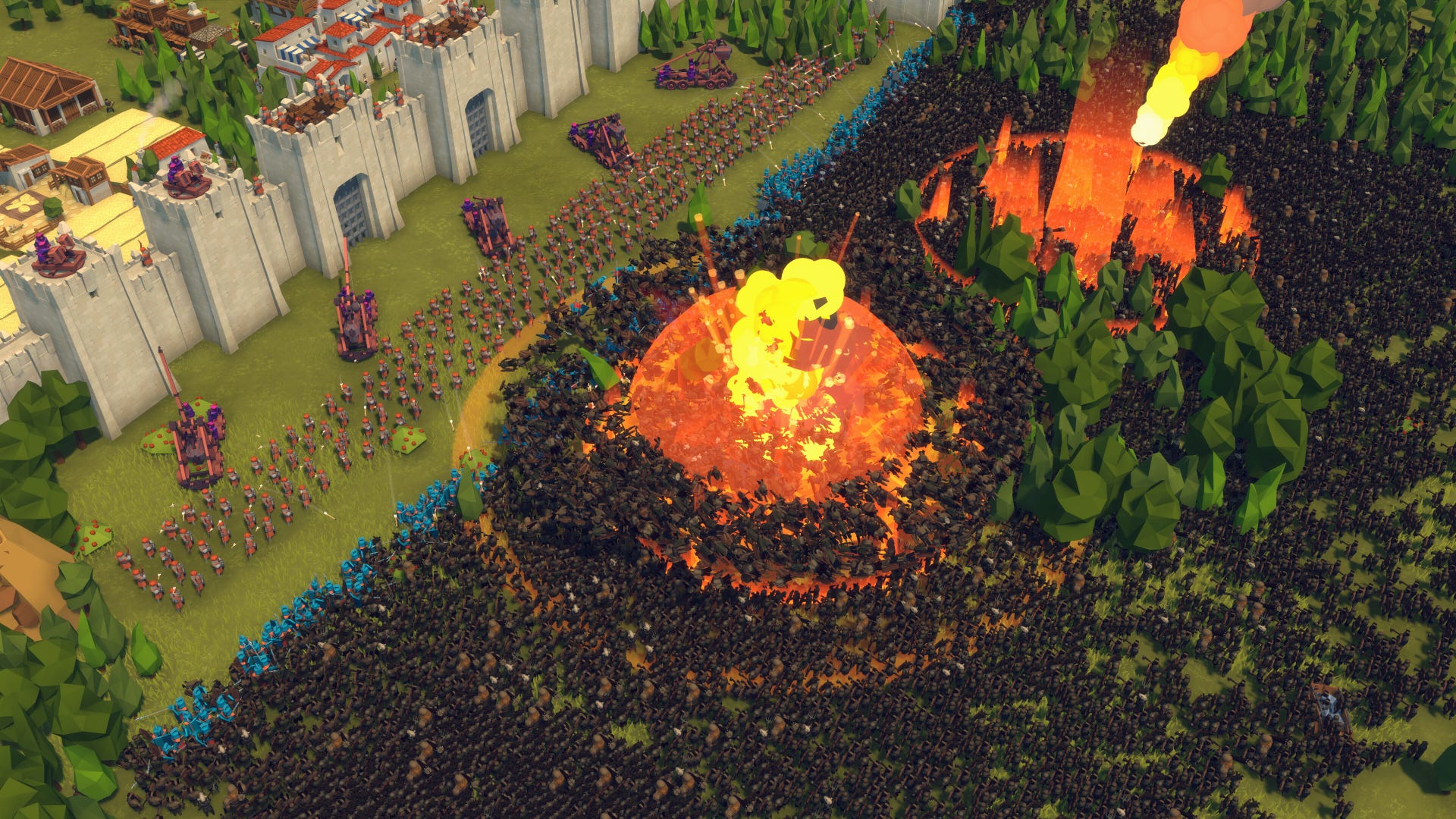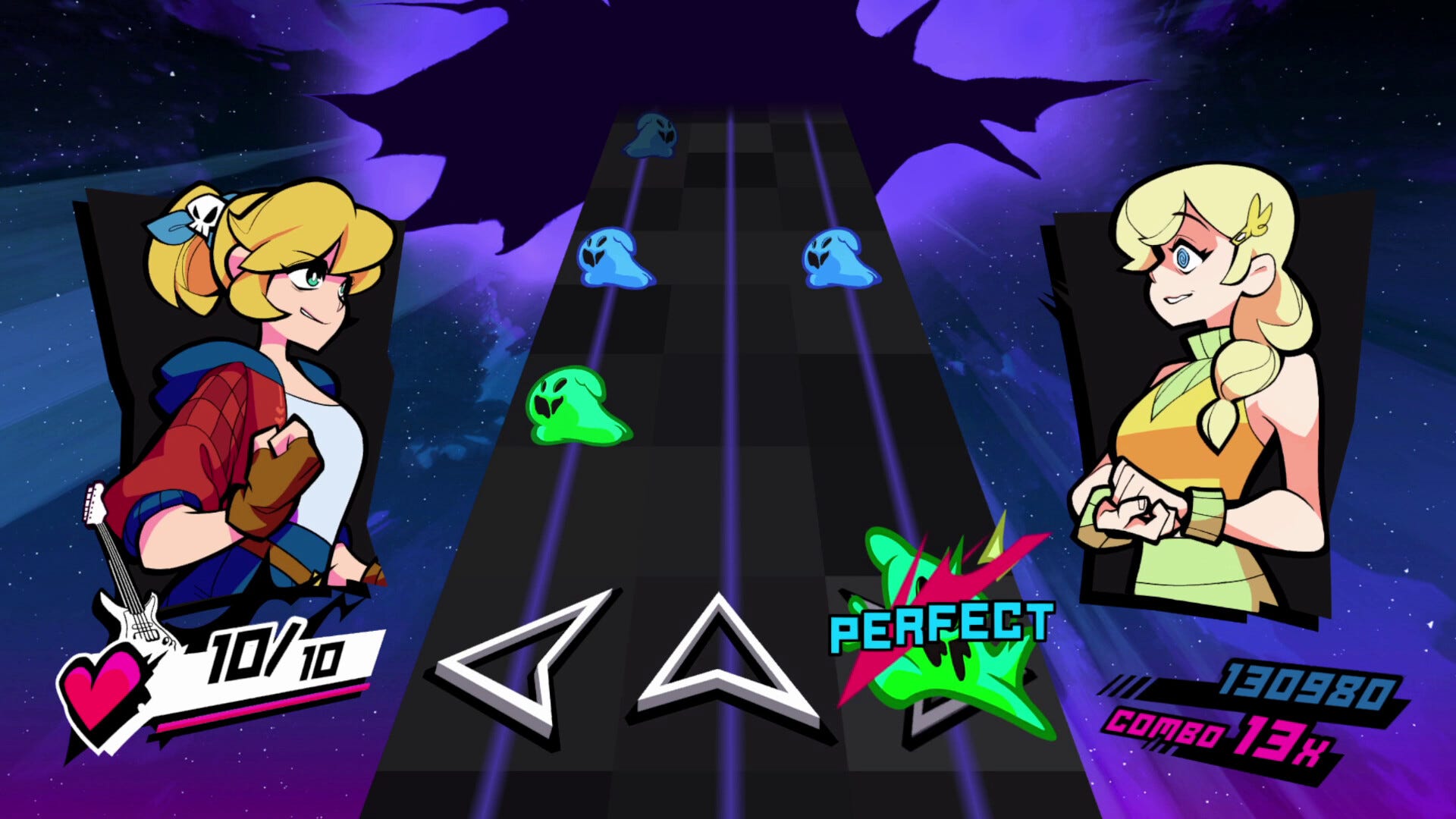We finally got our first glimpse of Civilization VII’s gameplay during gamescom 2024, and it’s already looking much different than anything we’ve ever seen from the legendary series. That includes a huge shakeup to the way that Civilization VII progresses thanks to its new “ages” system, which is designed to break its progression into something like chapters.
We already checked out Civilization VII in first preview, which left us with a pretty positive outlook on the anticipated sequel. Still, we had plenty of questions for creative director Ed Beach, who sat down with us for an interview at gamescom. Read on for his thoughts on Civilization VII’s new structure, whether it will incorporate elements from the previous game’s Gathering Storm expansion, and much more. And for everything else announced during gamescom 2024, go here.
Civilization VII will release on PC, PS5, PS4, Xbox Series X|S, Xbox One, and Switch on February 11, 2025.
I was telling you off-screen that I just got into Civ VI and now I have to relearn Civ VII, but I think that’s fine.
Ed Beach, Creative Director, Firaxis: We’re trying to make it so the barrier of entry is a little bit lower than before. Civ VI could get a little dense in places. If you jumped in at the end with all the expansions and all the content there, that’s actually not the easiest place to start. So I think Civ VII might be just the move you want to make.
Yeah, I’m really excited. So you’re leading me into my next question. So you’ve been consistently updating Civ VI and there’s a lot of mod support. So why is now the best time for Civ VII?
Beach: Well, we’ve been thinking about Civ VII for quite a while. We started working on the game before the pandemic, so it is been in development quite a while. The design team had ideas that worked really well in Civ VI, but had some side effects in terms of the game takes a really long time to play. By the time you get late in the game, there’s an awful lot of cities and units and so forth to manage, and we wanted to think about that and come up with a different approach so that we could make the game more manageable, more approachable, and actually just get players all the way to the finish line more often than had been happening in previous Civ games.
Yeah, I can’t tell you the amount of times I’ve stayed up till 3am playing just one more round. It’s got me. So Gathering Storm and its global warming and mechanics offer such a dynamic change for the core gameplay. Is that something that’s going to be implemented in Civ VII?
Beach: So we’re not talking a lot yet about what comes after the exploration age after the Renaissance. The first age we’re diving all the way into right now and we have demos and so forth of that. We’re not going to forget about climate change, though it was very personally impactful when we got to work on that with Gathering Storm. I was the lead designer of that expansion.
I looked up a lot of things about climate change… I mean, we’re not a simulator type of game, but tried to get some of the things right in terms of how sea level rise works and storms move across the globe and so forth. So we brought a lot of that forward with us and what you can see in the game right now that we’re demoing with the Antiquity Age is there still are floods, there’s still volcanic eruptions. We still have the storms that sweep across the map.
So a lot of that Gathering Storm mechanics, ideas, whatever, that we still have those.
So is that part of the crises that is being implemented into this new system?
Beach: So those are sort of adjacent but similar. We have several different crises. The one that we’re demoing right now is an invasion crisis, sort of imagine you’re the Roman Empire and you’ve gotten too big and everyone wants a little piece of your action. And so those barbarians are at your gate and knocking on down the door. So that’s the one that we’re demoing in the build we have here right now. But we’re working on other types of crises, things like unrest in your population or plagues and some of those systems for crises use the same random event system that we use for the natural disasters.
So why did you switch to the age system?
Beach: So it is part of the trying to get people to have a game that is more manageable. 4X games have the problem in general, that you start with just your first unit, you get one city down, you think, wow, this game’s great. It’s very manageable when I get tens and dozens of cities and so many units to manage. Everything bogs down. And we wanted to break our game up into chapters very much like maybe a long book series or TV series that you might be enjoying breaks itself up into seasons or books.
So we could have big traumatic moments like these crises that you’re talking about, but then also give players a chance to breathe a little bit and reset things and simplify things. And that allows you to pace the player through a long experience in a more satisfying way than just saying, “Oh no, it’s just going to get bigger and bigger and bigger and you just got to keep up.”
So it’s a nice new way to tackle that problem and we’re really excited about how it’s playing out.
As a new sort of player I’m very happy to hear that. But for returning players, do you think it’s still challenging enough that they’ll find this new system interesting?
Beach: Well, yeah. The experience is still just as long overall. So we actually do sort of a deeper, more immersive dive into the history of each historical age than before. And some of the gameplay mechanics, we can make deeper changes to them so that they unfold differently maybe in our antiquity age than in our exploration age, like our trade systems are different in all three ages.
So I think there’s plenty for people to dive deep in. We’ve recently demoed the game to a whole bunch of our community veterans. They’re really excited about the possibilities and theory crafting and everything. So there’s going to be plenty for everyone.
What was the best piece of feedback you got back from the community?
Beach: I think one thing we had to be really careful about is now that we’ve broken the game up into ages, we make you really think about who you are, which leader in civilizations are representing you in the game, and you get a chance to a unique historical pathway.
Maybe you start as Rome, and where did Rome evolve? Maybe it evolved into another European Civ and that would get you to a Germany or a Britain or France by the end of your game. And players like that historical storytelling and immersion. And we did allow some wackier combinations, and some of our fans love that because they love the theory crafting, I want to mix this with that and I’m going to be super overpowered in science.
But we also had to think about what those players who wanted the more historical pathway through our game. And so we’ve got the game set up so that that’s the default way that both the human and the AI proceed through the game and then you have to, it’s up to the player to opt into that wackier play style.
Okay. So you’re speaking about being able to change the leaders with each age.
Beach: Yes.
What is the wackiest combination that you’ve seen so far?
Beach: Well, we’re not talking about all the leaders and Civ’s that we have now, but you can do things like, you can have Augustus Caesar lead India, you can have Hatshepsut of Egypt lead Rome. So some of the things do strike you as a little bit wacky, but there are really good reasons and compelling reasons to try those things out… leaders that don’t normally go together might have bonuses in the same part of the game and you just want to explore, wow, what if I get really powerful in culture or in my military strategies?
And so those combinations are really compelling. Our quality assurance department who’s playing the game all the time is like, “Oh, you got to try this one with that one, because that’s amazing.” So it’s great to hear that kind of stuff.
Okay, great. I’m definitely more military forward… So I think I will try one of those combinations that sounds very compelling to me… Well, thank you so much for speaking with me about this. I’m very excited to start a lot of wars in Civ VII that I can’t finish.
Ed Beach: All right, well hopefully it just draws you in and you just stick with it because you want to see how it all ends and get all the way through.
Kat Bailey is IGN’s News Director as well as co-host of Nintendo Voice Chat. Have a tip? Send her a DM at @the_katbot.
.jpg?width=1920&height=1920&fit=bounds&quality=80&format=jpg&auto=webp)


